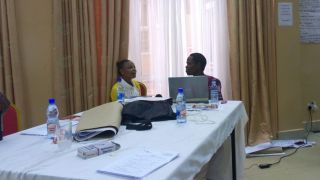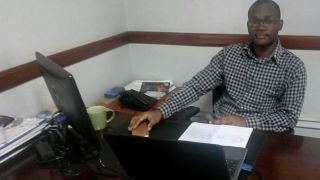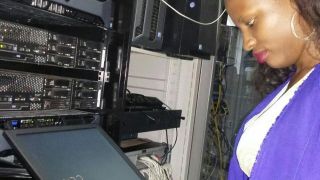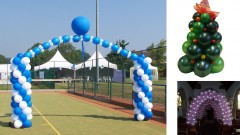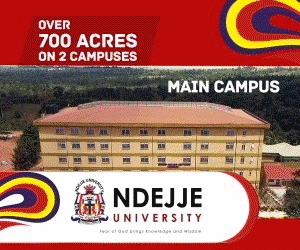Events Planner
Coordinate activities of staff, convention personnel, or clients to make arrangements for group meetings, events, or conventions.
Add to Favourites Compare with other careersEvents Planner
Coordinate activities of staff, convention personnel, or clients to make arrangements for group meetings, events, or conventions.
Sample of reported job titles: Catering Director, Conference Planner, Conference Planning Manager, Conference Services Director, Conference Services Manager, Convention Services Director, Convention Services Manager (CSM), Event Coordinator, Events Manager, Special Events Coordinator
Daily Tasks
1. Consult with customers to determine objectives and requirements for events, such as meetings, conferences, and conventions.
2. Review event bills for accuracy and approve payment.
3. Coordinate services for events, such as accommodation and transportation for participants, facilities, catering, signage, displays, special needs requirements, printing and event security.
4. Arrange the availability of audio-visual equipment, transportation, displays, and other event needs.
5. Confer with staff at a chosen event site to coordinate details.
6. Inspect event facilities to ensure that they conform to customer requirements.
7. Maintain records of event aspects, including financial details.
8. Monitor event activities to ensure compliance with applicable regulations and laws, satisfaction of participants, and resolution of any problems that arise.
9. Negotiate contracts with such service providers and suppliers as hotels, convention centers, and speakers.
10. Evaluate and select providers of services according to customer requirements.
Key Knowledge Areas
Customer and Personal Service — Knowledge of principles and processes for providing customer and personal services. This includes customer needs assessment, meeting quality standards for services, and evaluation of customer satisfaction.
English Language — Knowledge of the structure and content of the English language including the meaning and spelling of words, rules of composition, and grammar.
Communications and Media — Knowledge of media production, communication, and dissemination techniques and methods. This includes alternative ways to inform and entertain via written, oral, and visual media.
Clerical — Knowledge of administrative and clerical procedures and systems such as word processing, managing files and records, stenography and transcription, designing forms, and other office procedures and terminology.
Administration and Management — Knowledge of business and management principles involved in strategic planning, resource allocation, human resources modeling, leadership technique, production methods, and coordination of people and resources.
Computers and Electronics — Knowledge of circuit boards, processors, chips, electronic equipment, and computer hardware and software, including applications and programming.
Public Safety and Security — Knowledge of relevant equipment, policies, procedures, and strategies to promote effective local, state, or national security operations for the protection of people, data, property, and institutions.
Law and Government — Knowledge of laws, legal codes, court procedures, precedents, government regulations, executive orders, agency rules, and the democratic political process.
Skills
Active Listening — Giving full attention to what other people are saying, taking time to understand the points being made, asking questions as appropriate, and not interrupting at inappropriate times.
Reading Comprehension — Understanding written sentences and paragraphs in work related documents.
Speaking — Talking to others to convey information effectively
Coordination — Adjusting actions in relation to others' actions.
Critical Thinking — Using logic and reasoning to identify the strengths and weaknesses of alternative solutions, conclusions or approaches to problems.
Service Orientation — Actively looking for ways to help people.
Social Perceptiveness — Being aware of others' reactions and understanding why they react as they do.
Time Management — Managing one's own time and the time of others
Complex Problem Solving — Identifying complex problems and reviewing related information to develop and evaluate options and implement solutions.
Judgment and Decision Making — Considering the relative costs and benefits of potential actions to choose the most appropriate one.
Monitoring — Monitoring/Assessing performance of yourself, other individuals, or organizations to make improvements or take corrective action.
Persuasion — Persuading others to change their minds or behavior.
Key Abilities
Oral Comprehension — The ability to listen to and understand information and ideas presented through spoken words and sentences.
Oral Expression — The ability to communicate information and ideas in speaking so others will understand.
Speech Recognition — The ability to identify and understand the speech of another person.
Written Comprehension — The ability to read and understand information and ideas presented in writing
Written Expression — The ability to communicate information and ideas in writing so others will understand.
Deductive Reasoning — The ability to apply general rules to specific problems to produce answers that make sense.
Problem Sensitivity — The ability to tell when something is wrong or is likely to go wrong. It does not involve solving the problem, only recognizing there is a problem.
Fluency of Ideas — The ability to come up with a number of ideas about a topic (the number of ideas is important, not their quality, correctness, or creativity).
Speech Clarity — The ability to speak clearly so others can understand you.
Inductive Reasoning — The ability to combine pieces of information to form general rules or conclusions (includes finding a relationship among seemingly unrelated events).
Near Vision — The ability to see details at close range (within a few feet of the observer).
Originality — The ability to come up with unusual or clever ideas about a given topic or situation, or to develop creative ways to solve a problem.





